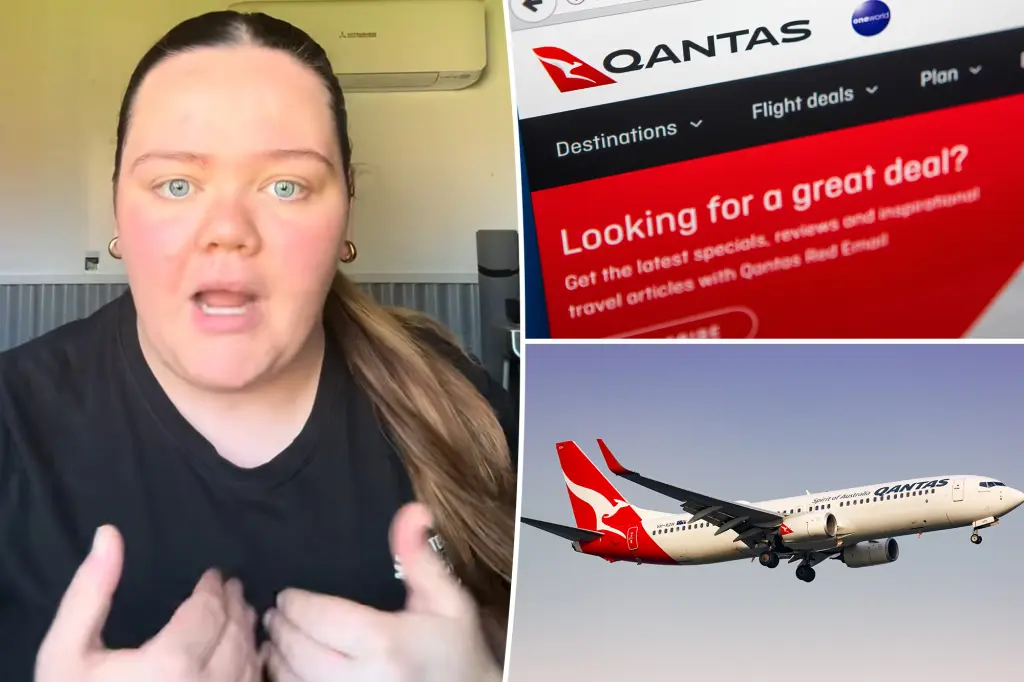When Oversharing on Social Media Ruins Your Dream Vacation
In an era where social media has become an extension of our daily lives, a cautionary tale emerges from a woman whose excitement about her dream vacation led to heartbreak when a stranger sabotaged her travel plans. Melissa Doherty’s experience serves as a sobering reminder about the potential dangers of sharing personal information online, even when done in a moment of pure joy.
Doherty had been planning what she described as the trip of a lifetime – a flight from Cairns, Australia to Singapore via Qantas Airways. Like many travelers in today’s digital age, she couldn’t contain her excitement and decided to share her travel plans on TikTok. Unfortunately, this moment of enthusiasm included a critical mistake: her booking reference and last name were visible in the video she posted. “I was excited, I just posted it, I didn’t think anything of it,” Doherty later explained, echoing a sentiment many of us might relate to when sharing good news online. What followed was something few travelers would anticipate – an unknown person used this information to access her booking and cancel her flight entirely.
The first indication that something had gone terribly wrong came when Doherty received an email from Qantas stating that her refund was “in process.” Initially assuming this meant her flight had been canceled by the airline and could simply be rebooked, she became concerned when she noticed she was only being refunded $800 AUD (approximately $520 USD) of the $1,200 AUD (about $780 USD) she had paid. When she contacted Qantas to inquire about the discrepancy, she was informed that someone had canceled her booking, and there was “nothing else” they could do. The realization that a stranger had deliberately sabotaged her travel plans left Doherty feeling physically ill. “I feel like I’m going to vomit at any given moment,” she shared in her follow-up video, calling the act “the lowest of the low” and questioning, “How jealous can you be?”
The response to Doherty’s plight on social media reflected the divided nature of online communities. Many users expressed sympathy and outrage on her behalf, with comments like “Ugh that’s so frustrating, I’m sorry that happened!” and encouragement to reschedule her trip despite the setback. However, as is often the case on the internet, not all reactions were supportive. Some users mockingly found humor in her situation, while others used it as an opportunity to criticize her decision to share personal information online, with one commenter pointedly noting, “This is what is wrong with sharing all your information on social media.” This mixed reaction highlights how the same digital platforms that allow us to share our joys can also expose us to both empathy and cruelty from strangers.
Fortunately for Doherty, her story appears to be headed toward a resolution. In an update to her followers, she shared that Qantas is working to refund the remaining money, and she has since rebooked her flights. While the financial aspect may be remedied, the emotional impact of having a dream vacation disrupted by a malicious stranger is harder to quantify. The incident has transformed what should have been a straightforward travel experience into a public lesson on internet security and personal boundaries. Doherty now cautions others with the simple but powerful advice: “don’t trust people on the internet.”
This incident raises important questions about our relationship with social media and the often blurry line between sharing and oversharing. In moments of excitement, it’s natural to want to share our happiness with friends and followers. Yet Doherty’s experience reminds us that even seemingly innocuous information – a booking reference, a last name, a flight number – can be weaponized in the hands of “a very sad individual,” as she described the perpetrator. Travel experts have long warned against posting boarding passes, hotel information, or detailed itineraries online, but in an age where documenting experiences has become almost reflexive, these warnings can be easy to overlook.
As we navigate an increasingly connected world, Doherty’s experience serves as a sobering reminder of the vulnerability that comes with digital openness. While social media allows us to share our adventures and connect with others, it also creates opportunities for those with ill intentions. The lesson isn’t necessarily to stop sharing our joy online, but rather to be more mindful of what specific details we include when we do. For travelers especially, the excitement of an upcoming journey shouldn’t be diminished by fear, but perhaps tempered with caution about what information becomes public. Doherty’s story reminds us that in our digital age, privacy isn’t just about keeping secrets – sometimes it’s about protecting our dreams.


